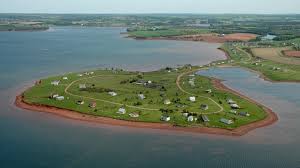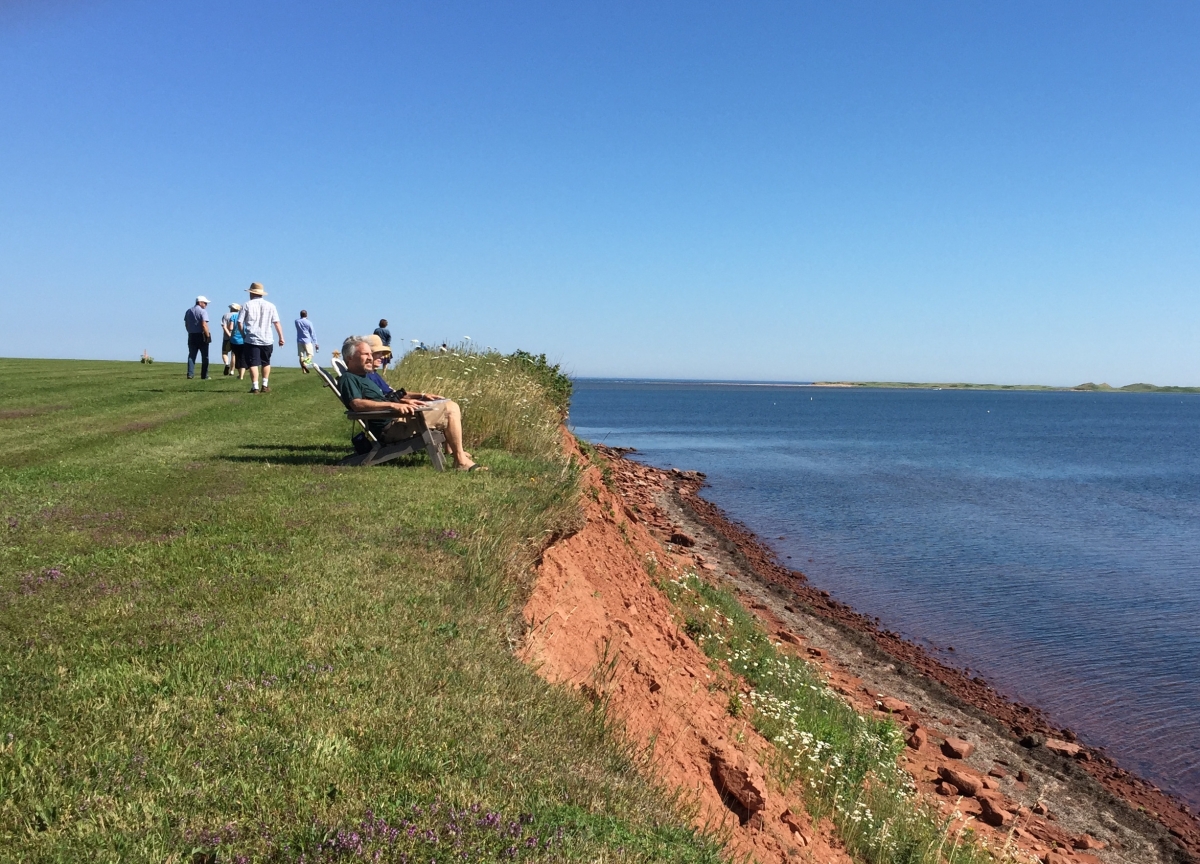“They have told us lies” – man from Alberta
 PEI – Prince Edward Island — is perhaps best known worldwide for mussels. Lesser known is potato farming with dozens of varieties, including the version they supply to McDonalds. In Canadian history it is noted as the “Birthplace of Confederation” the founding of their nation. It's a beautiful place and the people could not be friendlier.
PEI – Prince Edward Island — is perhaps best known worldwide for mussels. Lesser known is potato farming with dozens of varieties, including the version they supply to McDonalds. In Canadian history it is noted as the “Birthplace of Confederation” the founding of their nation. It's a beautiful place and the people could not be friendlier.
Locally there is another topic of discussion that is getting attention — the rapidly increasing coastal erosion that is suspected to be related to climate change and the strange weather patterns.
I am finishing up a four day visit at the invitation of the local university’s (UPEI) excellent Climate Research lab who asked me to give some presentations to help put that into context with sea level rise.
Yesterday was my last talk, up on the north shore, in a delightful summer community of about one hundred homes, “The Hebrides” (shown in photo above) where the residents are particularly concerned about the receding coast as shown in the attached photo. I explained how erosion was a completely normal feature of shorelines, but that the recent severe erosion was almost certainly a result of changing weather patterns, particularly winter storms and changing patterns of sea ice, that might normally protect the shore from fierce winter waves. I then explained that rising sea level is a mostly future phenomenon that would take the erosion problem to a whole new level perhaps as early as mid century.
As I always do, I put it in context of historic sea level change and show why the extra heat already stored in the sea due to increased greenhouse gas emissions, now made sea level rise inevitable. We can slow it, but can no longer can stop it. We need to begin adapting to rising sea level NOW, at the same time that we put policies in place to reduce the warming as quickly as possible, that is by reducing greenhouse gases (GHG). I assured them that there are ways to adapt that could serve them well for quite a few generations, perhaps longer.
I complimented them and the new government for wanting to understand the problem, starting with a vulnerability evaluation, which I could assist them with. At the end I took questions. There were a lot of good ones, as well as one obvious skeptic who had some factually incorrect information. For example he said that the explosion of the Mt.Pinatubo volcano in 1992 put more CO2 in the air than man ever had, to suggest that humans had little effect on things.
Now that I have looked up the facts, he was even more incorrect than I suspected. As the biggest volcanic explosion in a century, Mt. Pinatubo put 42 million tons of CO2 in the air, two tenths of one percent of the 23 BILLION tons of carbon dioxide produced by burning fossil fuels in that year alone.
In the end he seemed to accept the new information well, or was at least willing to learn, since he bought a copy of my book from the hosts. (High Tide On Main Street) At the end of my talk, another gentleman came up to me. He explained he lived in Alberta, the center of the petroleum industry in Canada. He was very subdued but obviously quite focused, maybe even angry. He thanked me quite pointedly, saying everything I said made sense and he was sure I was telling the truth. Then as he was about to turn to leave, he said solemnly ,“What really upsets me, is to realize that people back home are not being told the truth — In fact they have told us lies.” His words hung in the air.

